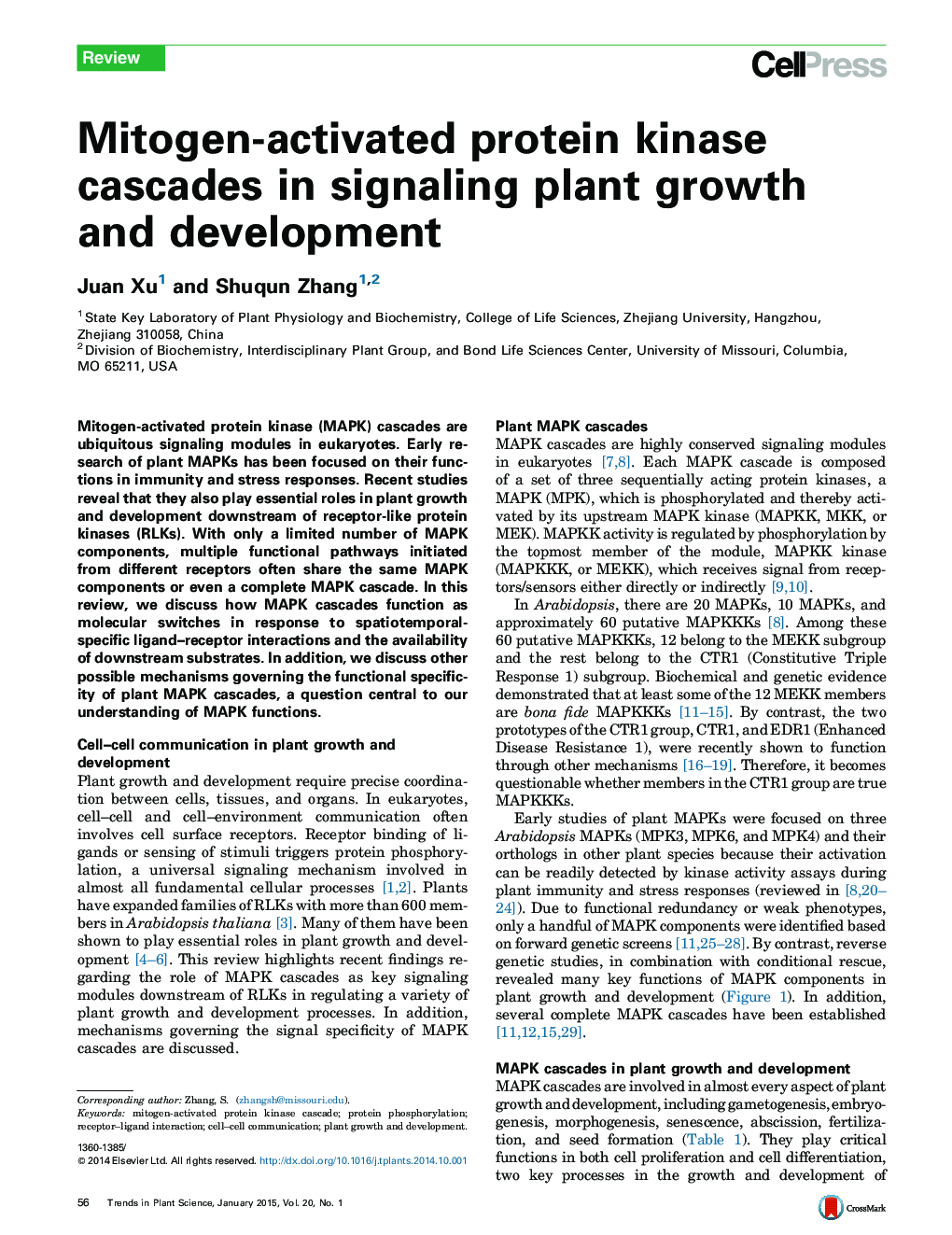| Article ID | Journal | Published Year | Pages | File Type |
|---|---|---|---|---|
| 2825905 | Trends in Plant Science | 2015 | 9 Pages |
•Mitogen-activated protein kinases (MAPKs) play essential roles in plant growth and development by regulating both cell differentiation and proliferation.•MAPK cascades are key signaling modules downstream of receptor-like protein kinases (RLKs).•MAPK signaling specificity can be governed by spatiotemporal expression of upstream receptors and the availability of their ligands.•Spatiotemporal-specific expression of MAPK substrates may also contribute to the specificity of MAPK signaling.
Mitogen-activated protein kinase (MAPK) cascades are ubiquitous signaling modules in eukaryotes. Early research of plant MAPKs has been focused on their functions in immunity and stress responses. Recent studies reveal that they also play essential roles in plant growth and development downstream of receptor-like protein kinases (RLKs). With only a limited number of MAPK components, multiple functional pathways initiated from different receptors often share the same MAPK components or even a complete MAPK cascade. In this review, we discuss how MAPK cascades function as molecular switches in response to spatiotemporal-specific ligand–receptor interactions and the availability of downstream substrates. In addition, we discuss other possible mechanisms governing the functional specificity of plant MAPK cascades, a question central to our understanding of MAPK functions.
